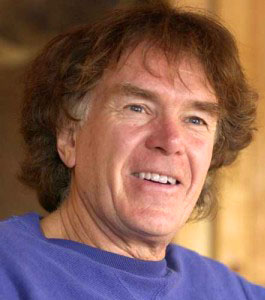Will Steger
American Polar Society Luminary
 Steger has been an eyewitness to the ongoing catastrophic consequences of global warming. A formidable voice calling for understanding and the preservation of the Arctic and the Earth, Will Steger is best known for his legendary polar explorations. He has traveled tens of thousands of miles by kayak and dog-sled over 45 years, leading teams on some of the most significant polar expeditions in history.
Steger has been an eyewitness to the ongoing catastrophic consequences of global warming. A formidable voice calling for understanding and the preservation of the Arctic and the Earth, Will Steger is best known for his legendary polar explorations. He has traveled tens of thousands of miles by kayak and dog-sled over 45 years, leading teams on some of the most significant polar expeditions in history.
Steger led the first confirmed dogsled journey to the North Pole without resupply (1986), the 1,600-mile south-north traverse of Greenland (the longest unsupported dogsled expedition in history in 1988), the first dogsled traverse of Antarctica (the historic seven month, 3,741-mile International Trans-Antarctica Expedition in 1989–1990), and the first dogsled traverse of the Arctic Ocean in one season from Russia to Ellesmere Island in Canada (1995).
Steger received his B.S. in Geology and M.A. in Education at the University of St. Thomas, St. Paul, MN, and taught science for three years at the secondary level. In 1970, he moved from his birthplace in suburban Minneapolis to the wilderness north of Ely, Minnesota. There he founded a winter school and developed innovative wilderness programs for 10 years. In 1991, Steger received an Honorary Doctorate of Letters, University of St. Thomas in St. Paul, MN, and Honorary Doctorate of Science, Westminster College in Salt Lake City, UT. He also holds Honorary Doctorates from Franklin Pierce University in Rindge, NH and Hamline University in St. Paul, MN. His unique ability to blend extreme exploration with cutting-edge technology, have allowed him to reach millions of people around the world, under some of the most hostile conditions on the planet and be a pioneer in online education. Over 20 million students followed the 1995 International Arctic Project via on-line daily journal entries and the first-ever transmission of a digital photograph from the North Pole.
Steger joins Amelia Earhart, Robert Peary and Roald Amundsen in receiving the National Geographic Society’s prestigious John Oliver La Gorce Medal (formerly the Gold Metal) for “Accomplishments in Geographic Exploration in the Sciences, and Public Service to Advance International Understanding” in 1995. This was the first time the Society had presented all three categories. In 1996, he became the National Geographic Society’s first Explorer-in-Residence and received the Explorers Clubʼs Finn Ronne Memorial Award in 1997. In 2006 Steger joined Jacques-Yves Cousteau, Dr. Thor Heyerdahl and Neil Armstrong in receiving the Lindbergh Award. Steger was given this award for “numerous polar expeditions, deep understanding of the environment and efforts to raise awareness of current environmental threats, especially climate change.” The same year Steger was appointed by Governor Tim Pawlenty to serve on the Minnesota Climate Change Advisory Group, a group charged with recommending a Climate Action Plan to substantially reduce Minnesotaʼs greenhouse gas emissions. In 2007, Steger received the prestigious Lowell Thomas Award from the Explorers Club and the National Geographic Adventure Lifetime Achievement Award for his work on climate change.
A recognized authority on polar environmental issues and ceaseless advocate for the Earthʼs well being, Steger has been invited to testify before the United States Congress, as well as advising world leaders on the environmental protection of Antarctica. Stegerʼs pioneering work in adventure-based environmental education was pivotal as he founded the Global Center of Environmental Education at Hamline University and the World School for Adventure Learning at the University of St. Thomas in 1993.
Recently, Steger formed the Will Steger Foundation, with a personal and professional commitment to foster leadership and international cooperation through environmental education and policy. He has been face-to-face with what we now know to be the gravest environmental threat of our time — global warming. Thus the Will Steger Foundation is educating, inspiring and empowering the public in a campaign to solve global warming.
